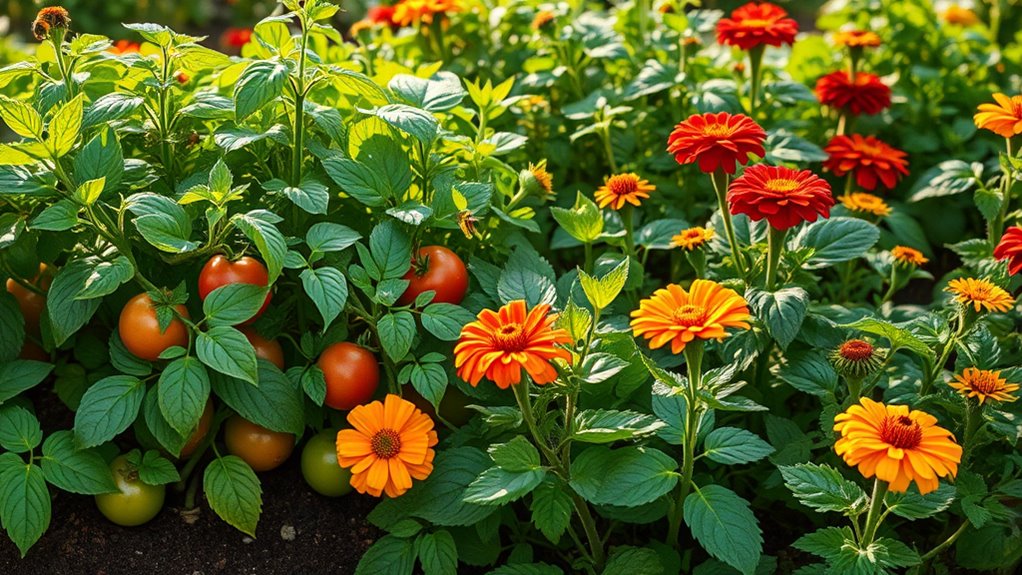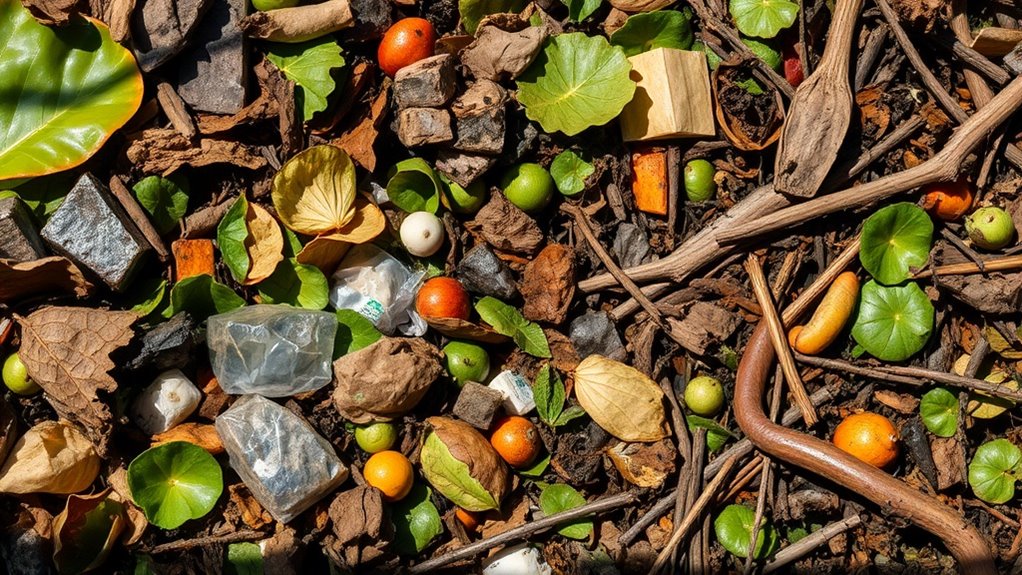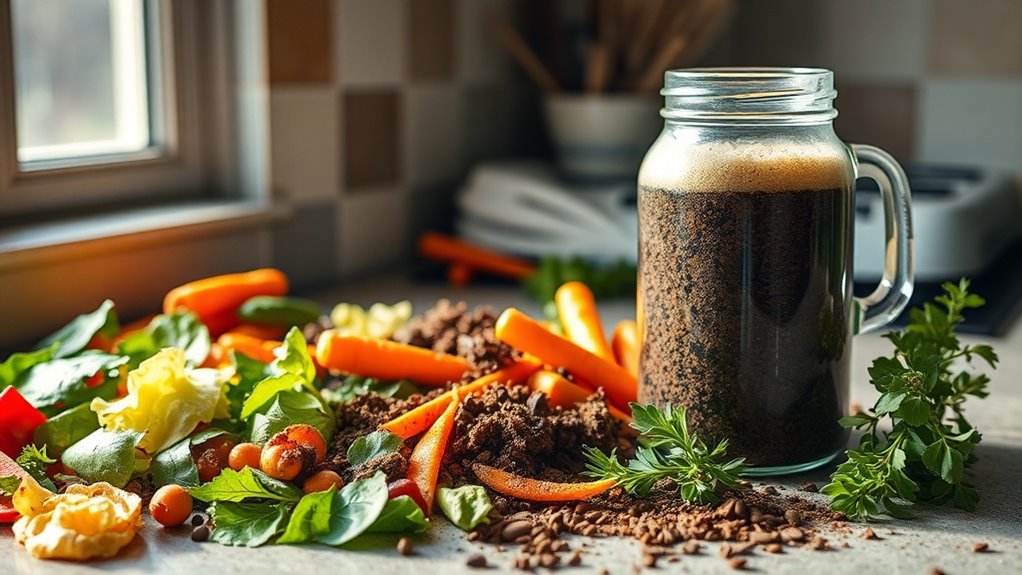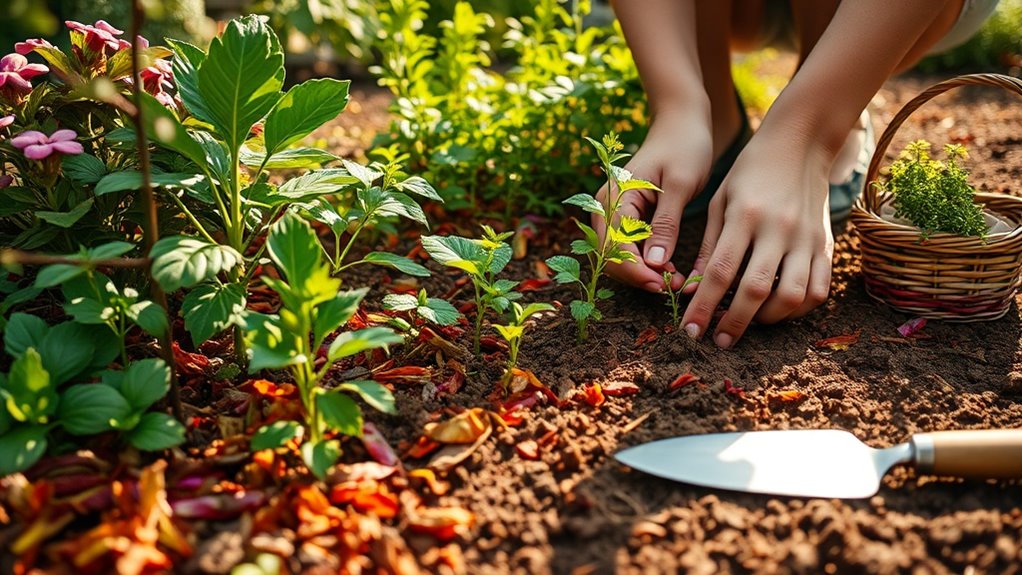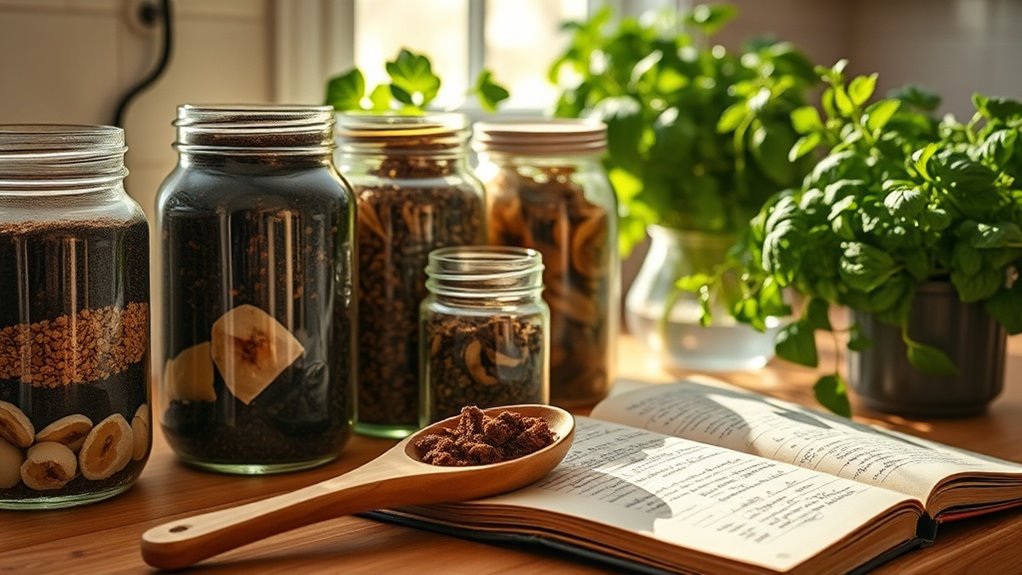My Garden Got Healthier After I Switched to Homemade Fertilizer
Switching to homemade fertilizer can significantly enhance your garden’s health. By using kitchen scraps like banana peels and coffee grounds, you’re not just reducing waste; you’re enriching your soil with vital nutrients. This natural approach fosters beneficial microorganisms, ultimately promoting robust plant growth. Curious about how easy it is to create your own and the specific benefits you’ll see? Let’s explore the essential steps and ingredients for making your garden thrive.
Understanding the Importance of Soil Health
Soil health is the foundation of any thriving garden. To achieve this, you need to understand how organic matter interacts with microorganisms.
Applying organic fertilizer tips, like composting kitchen scraps or using aged manure, boosts nutrient levels and enhances soil structure. Additionally, homemade fertilizer from kitchen scraps can provide essential nutrients that support microbial activity in the soil.
Regularly testing your soil pH can also inform your fertilizer choices, ensuring your plants receive the right balance for optimal growth.
Common Ingredients for Homemade Fertilizers
When you’re crafting homemade fertilizers for your garden, knowing the right ingredients can make a significant difference.
Common components include kitchen scraps like coffee grounds, which boost nitrogen, banana peels for potassium, and eggshells, rich in calcium. Eggshells as Natural Fertilizer can help improve soil nutrient content, further enhancing your plant’s health. You can also use compost to enhance nutrient content.
These ingredients nourish your plants naturally, promoting healthier growth without the chemicals found in commercial fertilizers.
How to Create Your Own Fertilizer
Creating your own fertilizer can be a rewarding experience, especially when you want to control what goes into your garden.
Here’s how to get started:
-
Combine banana peels for potassium.
-
Mix used coffee grounds for nitrogen.
-
Create compost from kitchen scraps for balanced nutrients.
In addition to these ingredients, incorporating natural ingredients into your fertilizer can further enhance plant health. These simple steps initiate your journey towards healthier, thriving plants that flourish under your care.
Benefits of Using Homemade Fertilizer
Using homemade fertilizer not only enhances your garden’s health but also promotes sustainability and resourcefulness.
By recycling kitchen scraps and yard waste, you reduce landfill contributions while enriching your soil naturally. You’ll see improved nutrient availability for plants and reduced risk of chemical runoff. Plus, it’s cost-effective, giving you a healthier garden without the heavy price tag of commercial fertilizers. Additionally, creating a potent homemade garden feed can provide essential nutrients that support robust plant growth.
Transitioning From Chemical to Homemade Fertilizers
Making the shift from chemical fertilizers to homemade options can be straightforward and rewarding.
You’ll not only nurture your plants, but also protect the environment and your health.
Here’s how to get started:
- Gather organic materials like kitchen scraps.
- Research natural nutrient sources, such as compost or manure.
- Test your soil to tailor your fertilizer’s nutrients effectively.
Additionally, consider using a simple composting method to turn your organic waste into a valuable resource for your garden.
Tips for Maintaining a Thriving Garden With Homemade Fertilizer
While homemade fertilizers can significantly boost your garden’s health, their effectiveness depends on proper application and routine care.
To maintain a thriving garden, apply your homemade fertilizer consistently, ensuring it’s well-balanced. Monitor soil moisture and pH levels regularly. Incorporate organic matter and adjust your fertilization schedule based on plant growth stages. Additionally, using rice water as a nutrient-rich fertilizer can enhance the nutrient content of your plants.
Finally, observe your plants for signs of nutrient deficiencies or over-fertilization.

